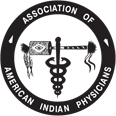Respiratory Syncytial Virus (RSV) infection is a common respiratory virus that circulates yearly in the United States, usually from late fall through early spring. The U.S. Centers for Disease Control and Prevention has identified an increase in infections, emergency department visits, and hospital admissions due to RSV in multiple regions of the United States, with some regions nearing seasonal peak levels.
In most people, RSV usually causes mild, cold-like symptoms. Most people recover in a week or two, but RSV can be serious, especially for infants and older adults. RSV is the most common cause of bronchiolitis (inflammation of the small airways in the lung) and pneumonia (infection of the lungs) in children younger than 1 year of age in the United States. Almost all children will have had an RSV infection by their second birthday.
There is no specific treatment for RSV infection; however, researchers are working to develop vaccines and medicines that fight these viruses.
